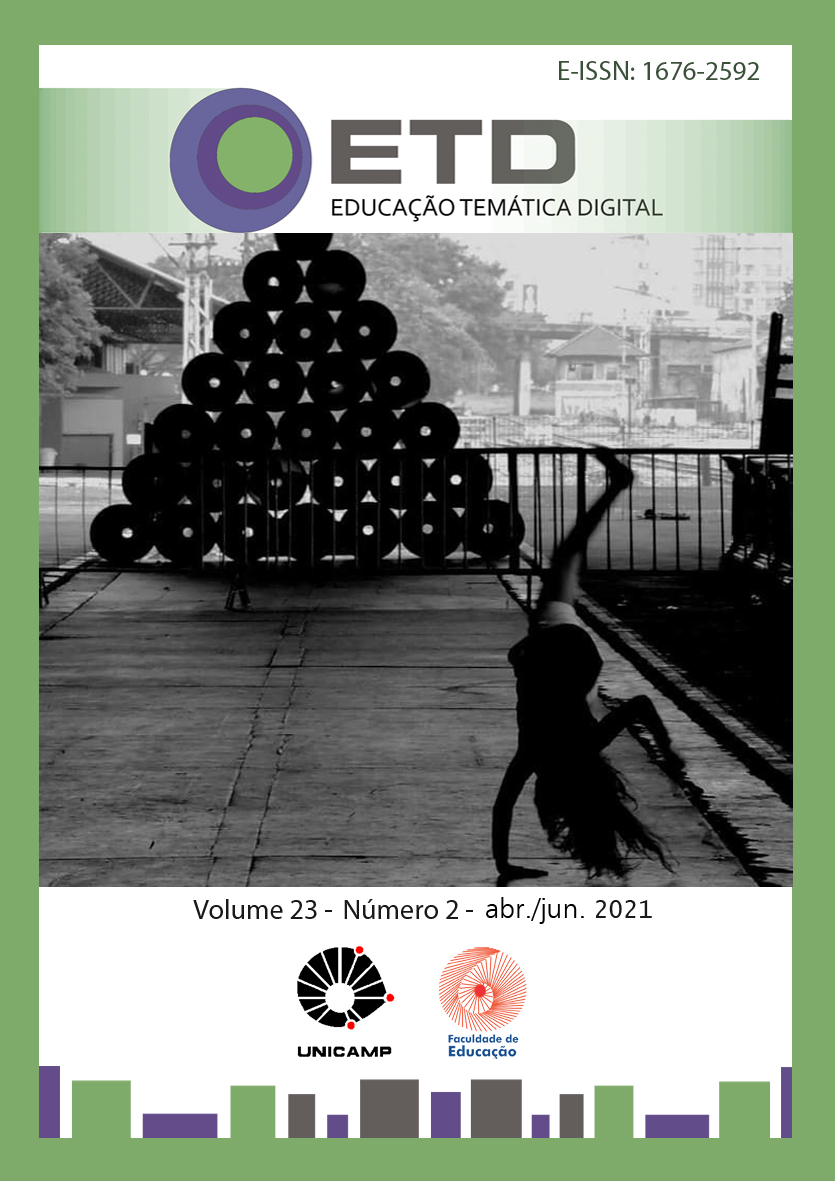Abstract
The goal of this article is to discuss the childhood in the recent process of housing removal ocurred in the Jardim Humaitá favela in the city of São Paulo, Brazil. The location of the study was chosen based upon the phenomena of conflitct between the economic and real state markets and its interest over the region. This is a matter still not far explored by the social sciences studies over the childhood and its relations with the urban scenario. From observations of the process of propriety reintegration of the public land made by the city government it was possible to identify the ways of fight and survival of these drifting children in conditions of struggle. The metodology: observations of that community, documental sources such as daily news shows and photographs and visitations to the favela in the months of Frebruary and April of 2019. We were able to to observe at close that not only habitations are removed, but also the children in those places, configuring a Removable Childhood. Concluding that not many lives carry true value in the eyes of the perportrators who committed this acts, and that it is on course a project of extermination of this population, made primarely of black and poor people, we see that not only adults are involved in this process, but also children that are at risk and fight, beeing agents capable of actions that diverge from this adverse scenario reacreating it in their own way.
References
BUTLER, Judith. Quadros de guerra: quando a vida é passível de luto? Rio de Janeiro: Civilização Brasileira, 2015.
BUTLER, Judith. Corpos em aliança e a política nas ruas: notas para uma teoria performativa de assembleia. Rio de Janeiro: Civilização Brasileira, 2018.
CALDEIRA, Teresa Pires. A política dos outros - o cotidiano dos moradores da periferia e o que pensam do poder dos poderosos. São Paulo: Brasiliense, 1984
CORTINA, Adela. Aporofobia: el rechazo al pobre. Barcelona: Paidós, 2016.
DEBORD, Guy. Teoria da Deriva. In: JACQUES, Paola Berenstein. Elogio aos errantes. Bahia: Ed. da UFBA, 2012.
DIDI-HUBERMAN, Georges. Sobrevivência dos vagalumes. Belo Horizonte:2014.
FIX, Mariana. São Paulo cidade global: fundamentos financeiros de uma miragem. São Paulo: Boitempo, 2007.
FIX, Mariana. Parceiros da exclusão. São Paulo: Boitempo, 2001.
FREITAS, Marcos Cezar de; PRADO, Renata Lopes. Concepções de infância, vulnerabilidade e ética na pesquisa com crianças. In: FONSECA, Claudia; MEDAETS, Chantal; RIBEIRO, Fernanda Bittencourt. Pesquisas sobre família e infância no mundo contemporâneo. Porto Alegre, Ed. Sulina: 2018
FUNDAÇÃO SEADE. Disponível em: https://www.seade.gov.br/ Acesso em: 16 jan. 2019.
INSTITUTO DE PESQUISAS ECONÔMICAS APLICADAS. Atlas da Vulnerabilidade Social nos Municípios Brasileiros. IPEA, 2015.
JACQUES, Paola Berenstein. Elogio aos errantes. Bahia: Ed. da UFBA, 2012.
KOHARA, Luiz Tokuzi. Relação entre as condições da moradia e o desempenho escolar: estudo com crianças residentes em cortiços. 2009. 297 f. Tese (Doutorado) - Faculdade de Arquitetura e Urbanismo da Universidade de São Paulo, São Paulo, 2009.
KOWARICK, Lúcio. A espoliação urbana. Rio de Janeiro: Paz e Terra, 1979.
LEFEBVRE, Henri. A vida cotidiana no mundo moderno. São Paulo: Ática, 2010.
LEFEBVRE, Henri. La producion del espacio. Espanha: Capitain Swing, 2013.
LUISELLI, Valéria. Arquivo das crianças perdidas. São Paulo: Companhia das Letras, 2019.
MBEMBE, Achille. Necropolítica. Santa Cruz de Tenerife, Espanha: Melusina, 2011.
PATERNIANI, Stella. Morar e viver na luta: movimentos de moradia, fabulação e política em São Paulo. São Paulo: Annablume/Fapesp, 2016. 166p.
PELBART, PETER PAL. Necropolítica tropical: Fragmentos de um pesadelo em curso. São Paulo: Editora N-1, 2018.
REDE BRASIL ATUAL. Disponível em: https://www.redebrasilatual.com.br/
RIZZINI, Irma. Higiene, tipologia da infância e institucionalização da criança pobre no Brasil (1875-1899). Revista Brasileira de Educação, v. 19, n. 58 jul./set. 2014.
SASSEN, Saskia. Expulsões: brutalidade e complexidade na economia global. Rio de Janeiro: Paz e Terra, 2016.
SPIVAK, Gayatri Chakravorty. Pode o subalterno falar? Belo Horizonte: Ed. UFMG, 2010.
STABILE, Arthur; CRUZ, Maria Teresa. Mais de cem famílias vão para a rua após reintegração de posse na zona oeste de SP. Jornal Ponte: direitos humanos, justiça e segurança pública. 20 fev. 2019. Disponível em: https://ponte.org/mais-de-cem-familias-vao-para-a-rua-apos-reintegracao-de-posse-na-zona-oeste-de-sp/#/ Acesso em: 22 fev. 2019.
TELLES, Vera da Silva; CABANES, Robert. (Org.). Nas tramas da cidade: trajetórias urbanas e seus territórios. São Paulo: Humanitas, 2006.
WISNIK, Guilherme. Dentro do nevoeiro. São Paulo: Ed. UBU, 2019.

This work is licensed under a Creative Commons Attribution-NonCommercial-NoDerivatives 4.0 International License.
Copyright (c) 2021 Márcia Aparecida Gobbi


